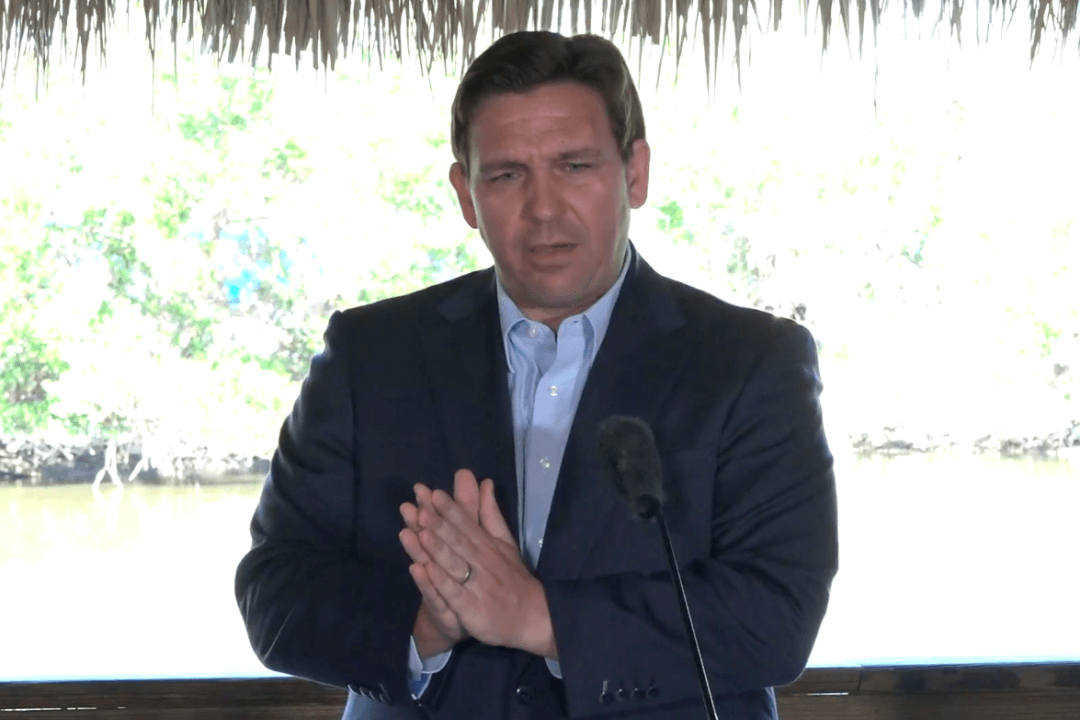In a bid to bring down prescription drug prices in Florida, Gov. Ron DeSantis, on Jan. 12, announced initiatives aimed at drug manufacturers and pharmacy benefit managers (PBMs), the companies that act as middlemen in the process.
The measures, which he'll work with the legislature to carry out, “will protect consumers and increase accountability,” the governor said at The Villages, a large retirement community in Central Florida





